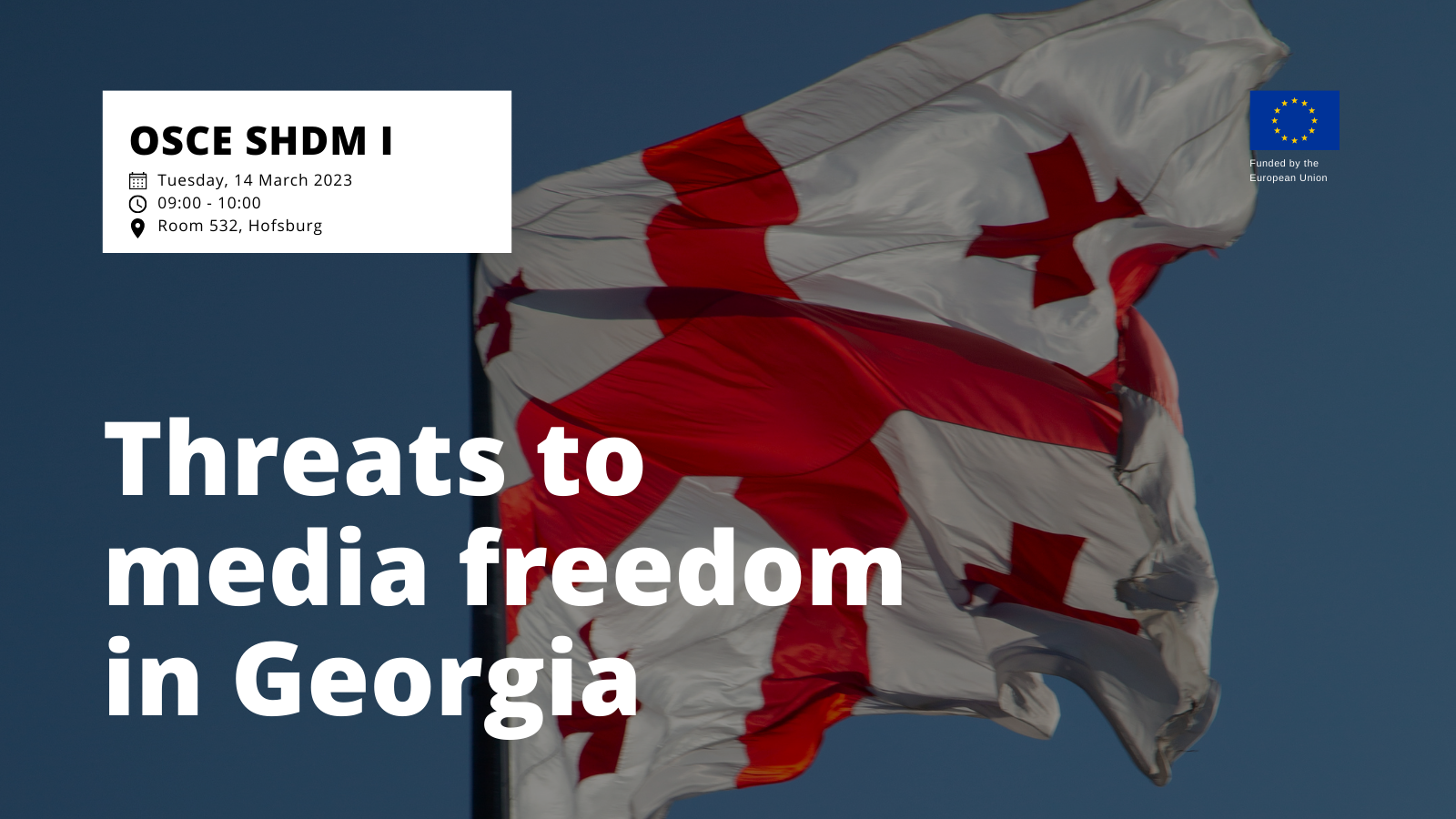
Quotes from the speakers
The Russian-style draft law on foreign agents targeted Georgian civil society and independent media. In doing so, it also targeted children, disabled people, victims of domestic violence, internally displaced persons, and representatives of other vulnerable groups: all communities served by civil society.
Mariam Mkhatvari, Rights Georgia / Human Rights House Tbilisi
By attempting to further close space for human rights defenders and media, the Georgian authorities sent a clear signal about their desire to silence dissent and voices calling attention to human right violations.
Natia Tavberidze, Human Rights House Tbilisi
Last week’s protests amplified and brought into stark relief concerns of democratic backsliding, the commitment of Georgian authorities to international human rights obligations, and attacks on liberal democracy by the ruling Georgian Dream party.
Dave Elseroad, Human Rights House Foundation
Long before the Kremlin’s full-scale invasion of Ukraine, its enactment of a foreign agent law was a chilling omen of what was to come.
Andrey Shary, Radio Free Europe / Radio Liberty Russia Service
About the event
In February 2023, the People’s Power, a non-formal pro-government group of Georgian MPs that left the ruling Georgian Dream party in August 2022, registered a draft piece of legislation in Parliament. The “transparency of foreign influence” bill, which also has the support of the governing Georgia Dream party, is set to be debated in the Georgian Parliament in the coming weeks and months.
The draft law would designate all media outlets, and non-governmental organisations, that receive more than 20% of their funding from foreign sources as ‘foreign agents’. Since it’s introduction in Parliament, the draft law has been widely criticised by Georgian and international civil society actors. Authors of the bill are accused of replicating the practice of authoritarian states and seeking to several restrict the freedoms of association and expression, posing a serious threat to democracy and civil society in the country.
This side event will bring together members of international and Georgian civil society to discuss the draft law and its potential impact on independent media and journalists in Georgia. The panel will focus on the following key questions:
- What are the implications of Georgia’s draft “foreign influence” bill for independent media, journalists, and civil society?
- How is Georgian civil society responding to the draft bill?
- What steps can participating States take to support independent media and journalists in Georgia?






